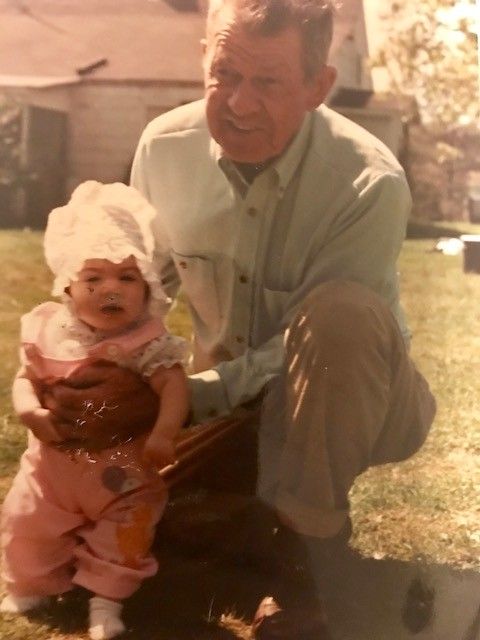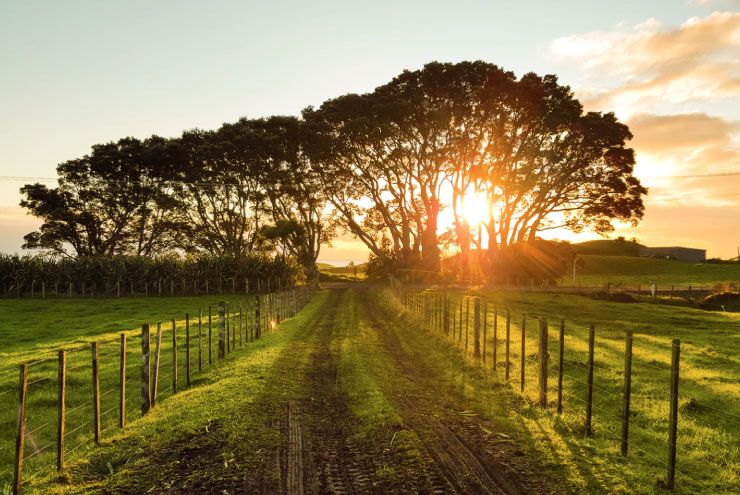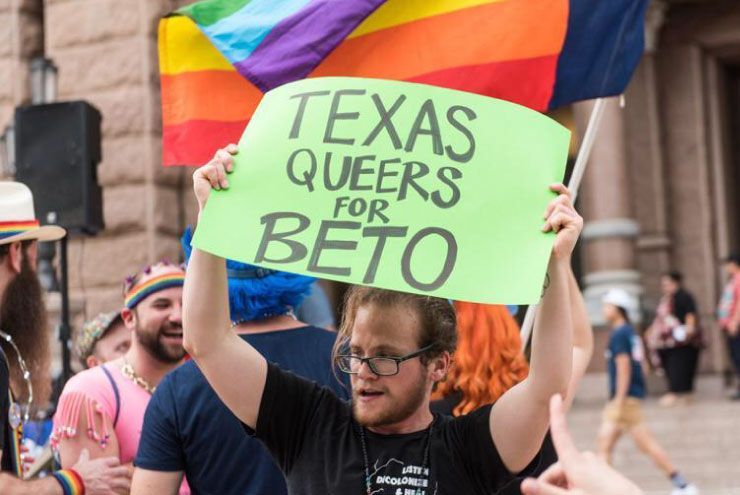By Dr. Laura McGuire
I was born in Tennessee on a bright Thanksgiving morning, surrounded by the same Appalachian Mountains my family had called home since the 1790s. My mother is Mediterranean and Hispanic and hails from the Northeast, but my father’s family has thrived for nine generations in the deepest part of the South. As a little girl, I played on my great-papaw’s 87-acre farm, fishing, shooting, and eating grapes off the vine. Life’s pace is different here. I was gifted my first gun at the age of eight, my papaw still owns a working farm, I know how a persimmon can predict next year’s weather, and a dirt-crusted pickup feels like home. But my relationship with my heritage and identity is messy, as messy as biting into a summertime peach, and oftentimes, is painful.

Laura McGuire (l) with her great-papaw, Quince, on their Appalachian farm.
There is beauty in this part of America—white chapels nestled in rolling mountains, streams that flow forever, lush vegetation and rich clay that supply precious minerals and food to the rest of the country. Our history, music, and art are a mix of the Irish, German, Scottish, Black, and Indigenous people who have lived, loved, and intermarried here for centuries. But in those chapels and small towns lies something just as fertile, but far more dangerous—hatred, fear, and prejudice.
Some queer people say they never knew what they were because they didn’t know the word. Well, I knew the word. I knew the word “gay” since I was in the first grade. I knew it because Mamaw used it to describe the all of the evils that existed in the world. She was a deeply religious Baptist woman, read her Bible every day, and participated in a number of socio-religious campaigns. One of her most fervent passions was making sure that the LGBTQ community was eradicated. After we moved from Tennessee to Florida, Mamaw wouldn’t let me give her any gifts from Disney in protest of the corporation’s policies that provided same-sex partner benefits to employees. Such policies were demonic, she would say. Homosexuality was demonic—a deadly sin. All gay people had an agenda to abuse the innocent, recruit the gullible, and destroy civilization as God had ordained it. I had family members who had serious addictions, repeatedly got pregnant out of wedlock, and even went to prison—but none of that was worse than being gay.
I was certain I was queer around age 14. I also knew how my family would react. When I was nine, I was in love with American Girl dolls. My favorite, by far, was Addy—the one and only Black American Girl at the time—because her story was the most emotional and brave. When I asked my parents for an Addy doll for my birthday, however, I was immediately told no. If my parents let me have a Black baby doll, they said, I might think it was okay for me to date a Black man, and that was against the Bible. If they weren’t okay with interracial dating, I knew if I showed interest in dating a woman, I would lose my family forever. I wasn’t ready for that. I’m a people pleaser, a homebody, and I’ve always struggled with depression and anxiety. I wanted to please God and my family, never myself. In my mind, bringing honor and pride to others was the only reason for being. So, I married a man to make them proud and hid my truth from the majority of my family members.
Years later, I would find the strength to leave my marriage in order to forge a safer, healthier, and braver life for myself and for my children. I often reflect on my southern ancestors and wonder what they would think of my life now. Being a redneck southern born and bred woman means that rebellion is in my blood. Too often we see the depiction of feminine southerners as demur, submissive, and tender. But southern women are fighters. And, while we still sometimes still struggle with fighting on the wrong side of history, I truly believe our core motives are righteous and good. We fiercely desire freedom, to be unlike anyone else, and to live life loudly, proudly, and unapologetically—all of which we share with queerness.
I’m not alone in my southern queer experience. LGBTQ author John Howard has taken on the deep emotional labor of uncovering queer southern histories like mine in his books Carryin’ On In The Gay and Lesbian South and Men Like That: A Southern Queer History. Howard not only chronicles the sociocultural aspects of queer identity and history—such as queer relationships amongst soldiers during the Civil War—but examines what brought queers to the rural areas of the South, as well as the unique culture southern LGBTQ individuals have built and fostered.
As a certified sexologist, I am especially interested in recent research on the cultural phenomenon of “bud-sex,” a relationship in which two straight-identified men share sexual and romantic connections with one another. These men, who live in some of the most rural, deep red parts of the country, enjoy sex and companionship with other men, yet don’t identify as part of the LGBTQ community. But then again, can we blame them? Can a redneck southerner ever be at peace with their queerness, both past and present? I hope, for my own sake and the sake of my peers, that the day will come. Until then, I defend and embrace my southern and queer identities so that future generations of queer southerners in small farming communities and rural mountain towns know that they can too.








Marcy Epstein
April 13, 2018 at 10:36 AMWhat a beautiful and strong person you are! I am loving the first-hand experiences in this newsletter, for it reminds me of the radical change of our LGBT past, when people insisted we could not be here or there, and yet, there we are, in all our fabulousness and humanity.
Dr. Laura
April 14, 2018 at 7:52 AMThank you Marcy! It is a huge honor to share my experiences and perspectives and know that others can relate ❤️